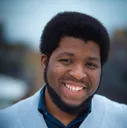Stay in the Loop
BSR publishes on a weekly schedule, with an email newsletter every Wednesday and Thursday morning. There’s no paywall, and subscribing is always free.
‘Moore Scouts’ and the near future of gaming
Do video games have potential for social impact?

When I was in first grade, my teacher gave us an assignment asking what we were doing outside of homework to become better readers. I was excited to write about my experience with Legend of Zelda: A Link to the Past, to which I attributed my reading comprehension, my problem-solving skills, and my desire to be a writer. Pardon the pun, but I was already ahead of the game.
She failed me for the assignment, insisting that video games carried no educational value at all. This crushed me, but golly was she wrong.
Learning through gaming
Fast forward to 2020, and Moore College of Art & Design not only has a game development program in its curriculum, but also has launched its own game to recruit potential game developers. The game, titled Moore Scouts, features you, the player, as Peter, a chihuahua who jumps, solves puzzles, grabs cookies for points, and finds library cards while exploring Philadelphia and scouting the Moore College campus.
The game was developed by an all-woman team of sophomores and juniors, including Laura Howard, Noelle Baniowski, Ariana Williams, and Sarah Barden, who all spoke with BSR about the project. Sophomores Howard and Baniowski were part of coming up with the prototype Moore Scouts, with Williams and Barden part of the team of juniors to make the game. For some of them, this was their first time creating a game, but they aren’t new to video games.
“Since childhood, I’ve always been exposed to a variety of games,” Baniowski said. “From my first system being a Gameboy Advance that I’d play on the car rides to and from primary school, to sitting with my father while we play simple freeware games on the family computer. This sparked my passion for games, and I’ve been playing them constantly ever since.”
Something for everyone
Gaming is often still misunderstood by the general public. When I talk about games with people who aren’t familiar with contemporary entries, they presume it’s all shooting games like Call of Duty, and that the culture is dominated by toxic masculinity. That’s only partly true, and much like my first-grade self knew in the early ‘90s, games were as legit an outlet for storytelling, interactivity, and education as any other medium. Cool, but the medium also presents opportunities for marginalized voices now more than ever.
Cecelia Fitzgibbon, president of Moore College, is surprised by how quickly the program is growing, and she’s glad to see it drawing many nonbinary and disabled students, among other underrepresented groups. This “shows that video-game development and playing is not just a ‘boys club’ thing. It is for everyone,” she said.

Games and social impact
I remember spending Sunday afternoons playing Kirby’s Dream Course with my mom, back when it was just her and me after my sister had gone off to college—that was certainly a bonding moment. Then, friendships blossomed from marathons of Tekken 3 and Marvel vs. Capcom 2. I found answers about my identity with Stardew Valley’s diverse, inclusive community. I played out unique perspectives around sexuality with Cibele, A Normal Lost Phone, and Gone Home. And games like 1979 Revolution: Black Friday and Bury Me, My Love taught me about the undercurrents of social and political unrest. Many of these games were made by small teams of up-and-coming developers—like the Moore Scouts team.
Howard agrees. “I think programs like these are vital in giving a voice to those who are not often heard. It’s still refreshing to be in an atmosphere that celebrates women and nonbinary creators—the world could use more spaces like that!” she says of Moore. Video games had a profound influence on her life, including an invaluable lesson from Star Fox 64: “never give up, trust your instincts!”
Williams was adamant about gaming's potential for social impact. While video games are typically known as a source of “entertainment, stress relief, and escapism,” she noted, they are also a source of community for people who haven’t had the chance to tell their stories—or may not know-how. Without them, I wouldn’t be capable of expressing myself creatively and professionally as I do today.
Moore Scouts is available on Android devices via the Google Play store and is free to play. Find out more about Moore College of Art & Design’s Animation & Game Arts program online.
Sign up for our newsletter
All of the week's new articles, all in one place. Sign up for the free weekly BSR newsletters, and don't miss a conversation.

 Kyle V. Hiller
Kyle V. Hiller